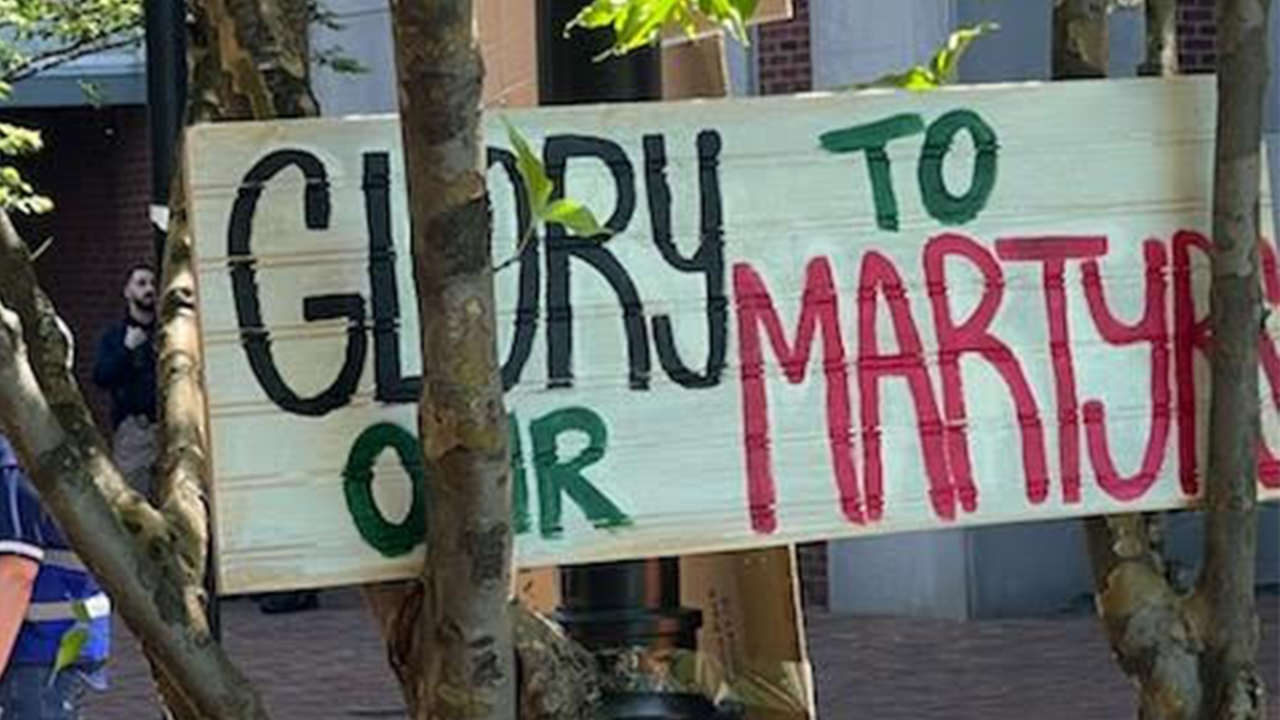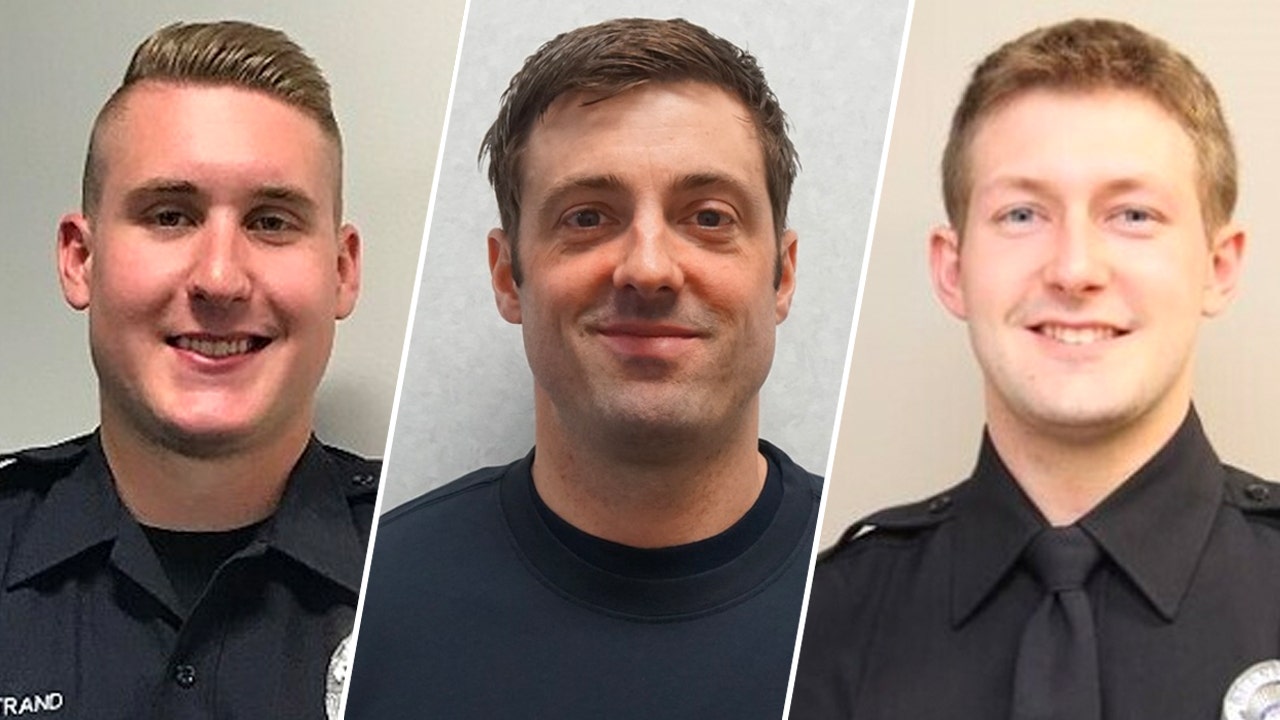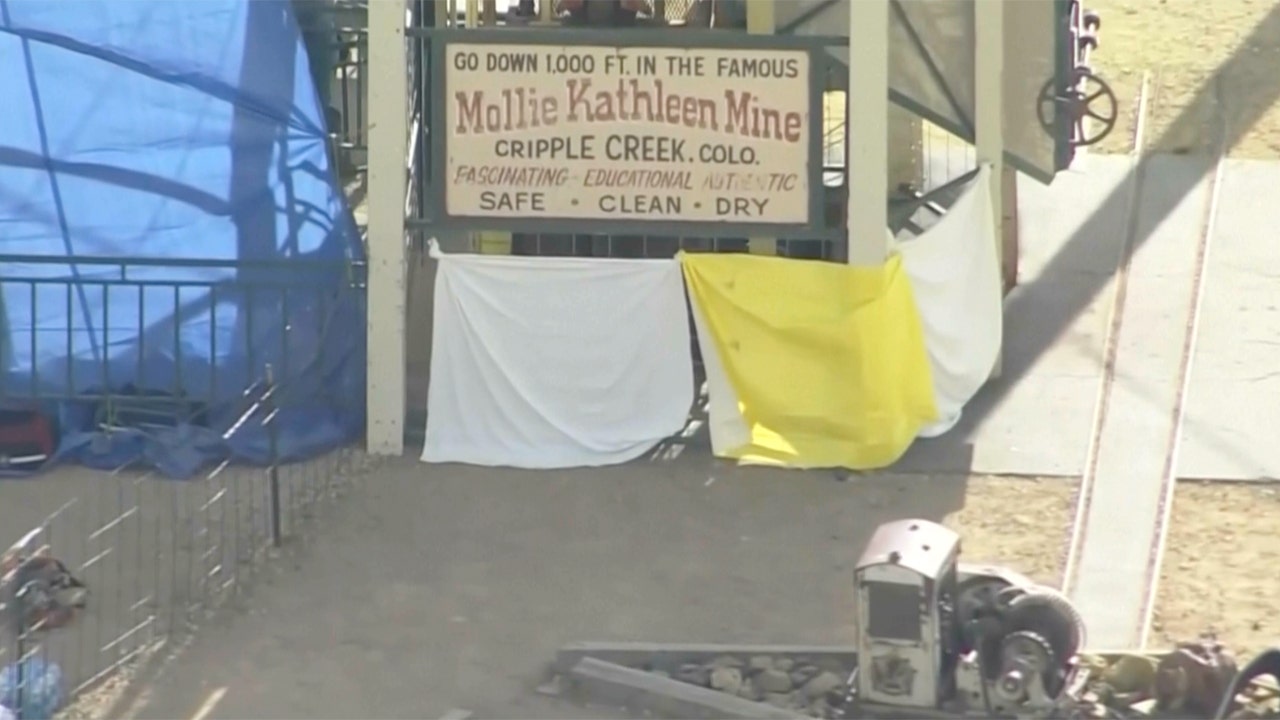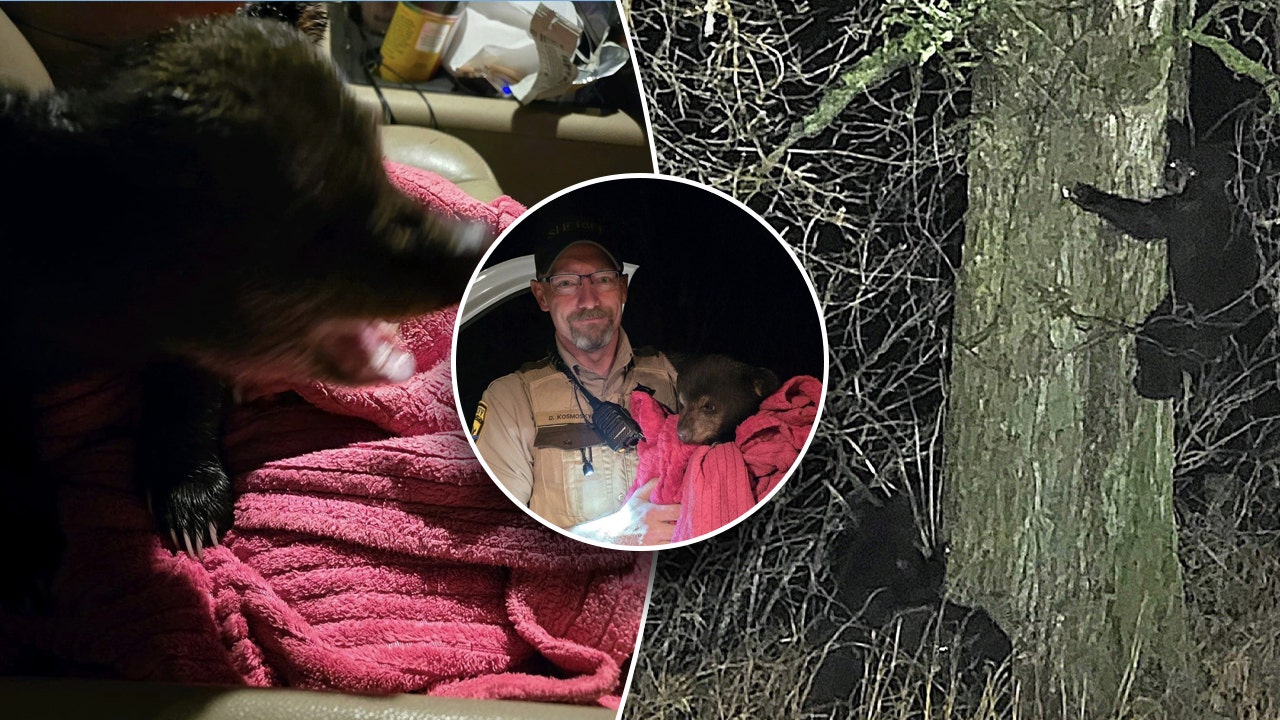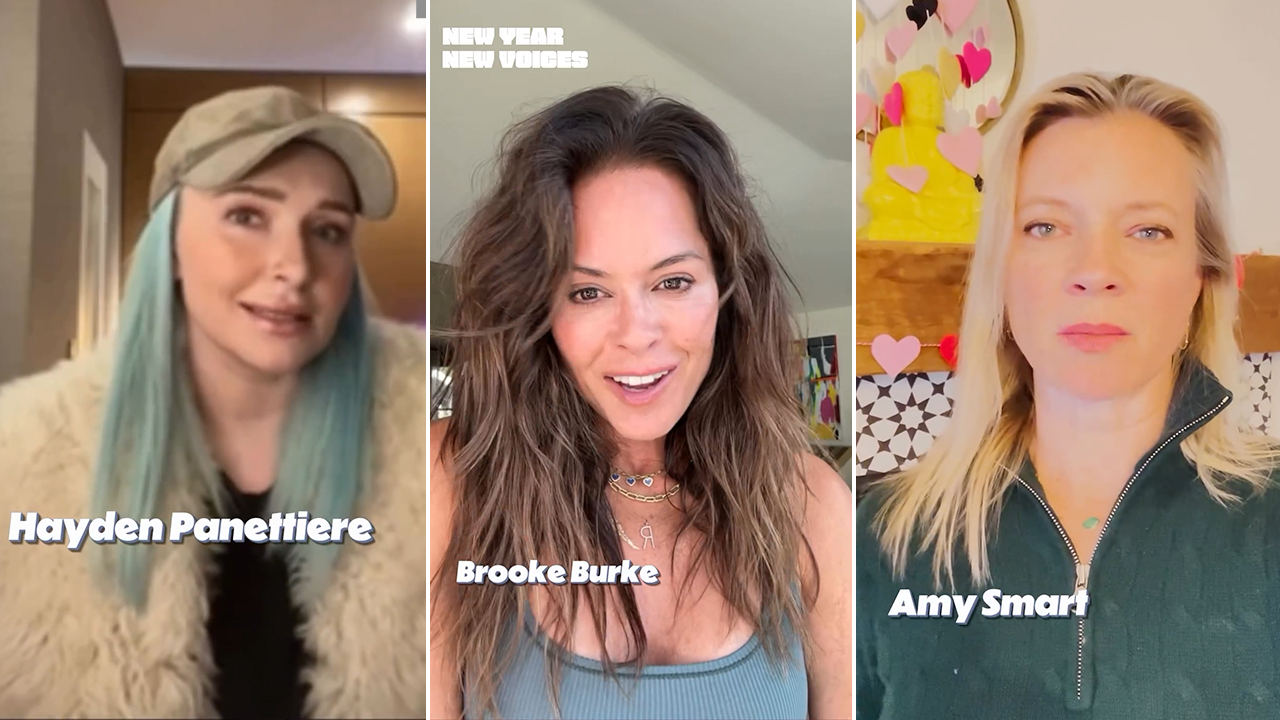He has repeatedly accused three Black prosecutors investigating him of “reverse racism.” He told a gathering of Black Republicans that Black people like him because he, too, has been charged by the criminal justice system. And he has suggested that Black people relate to his mug shot.
There’s a fundamental tension in Donald J. Trump’s attempts to woo Black voters. He repeatedly traffics in stereotypes about Black Americans, yet he is counting on them, and aggressively courting them, to help him win back the White House in November.
His campaign is relying on achieving modest gains with Black voters — or peeling some away from President Biden and toward a third-party or independent candidate such as Cornel West or Robert F. Kennedy Jr. — and it is part of his math for 2024. Public polling shows him faring better with Black voters than any Republican presidential candidate has in decades.
Mr. Trump currently receives nearly four times the support from Black voters in polling than the 6 percent who actually voted for him in 2016, according to Pew Research Center data. He is vying for wins in states with major cities that have large Black populations, including Michigan, Wisconsin, Pennsylvania and Georgia. The margins of victory are expected to be small in those four states, where Mr. Trump hopes to offset his potential weaknesses with independent voters and suburban women.
Still, to the concern of Democrats, Mr. Trump’s economic and cultural pitch to Black voters, whom he has often called “the Blacks,” has shown some early resonance.
“The polling is coming out and they say ‘Wait a minute, there must be a mistake here. Black people really like Trump. There must be a mistake,’” Mr. Trump said at a Black Conservative Federation event last month, a preview of his message that the country — and Black voters’ pocketbooks — had been better off when he was president.
Even if Mr. Trump converts few Black voters to his side, he could benefit simply by depressing turnout among Black voters for Mr. Biden. It was a core strategy for the Trump team in 2016 in the general election against Hillary Clinton.
“I think the greatest threat to Biden’s ability to rebuild his 2020 coalition, that looked like the 2012 coalition, isn’t Donald Trump with Black voters, it’s frustration and cynicism that’ll lead to an off-ramp of third-party candidates,” said Cornell Belcher, a pollster who worked for Barack Obama.
Even as Mr. Trump lost Black voters overwhelmingly in 2020, he gained ground relative to 2016, according to exit polls. He performed stronger among Black men, winning 19 percent; it was double his share among Black women.
Steven Cheung, a spokesman for Mr. Trump, accused Mr. Biden and his campaign of “trying to gaslight and distract from the fact that Black Americans are turning their back on their destructive policies,” and said that “by contrast, President Trump delivered policies for Black Americans,” including a criminal justice reform bill and funding for Black colleges and universities.
But Mr. Trump’s record is more complicated than it appears when he and his campaign try to sell it.
He signed a renewed funding bill for Black higher education institutions, which Congress passed. But while Mr. Trump signed a criminal justice reform bill, and took credit for the Black unemployment rate, during his presidency, critics say his pro-police rhetoric often undercut his work on criminal justice reform, and that he overstated his role in the low unemployment rate. Other Trump policies undercut Black Americans, including watering down a fair housing rule that his predecessor, Mr. Obama, had put in place.
Mr. Trump also has a lengthy history of making racist statements. In 2020, he echoed the words of a Miami police chief, saying that “When the looting starts, the shooting starts,” during Black Lives Matter protests over the killing of George Floyd. He referred to African nations and Haiti as “shithole countries” during an immigration meeting at the White House. He told congresswomen of color who were born in the United States to go back to own their countries.
But Mr. Trump has privately attempted damage control when allies on the hard right have fueled the idea that he and his political movement are racist.
In January, one of Mr. Trump’s close allies, Charlie Kirk, a young conservative activist who founded Turning Point USA, provoked outrage when he questioned the qualifications of Black pilots, saying on his show, “I’m sorry, if I see a Black pilot I’m going to be like, ‘Boy, I hope he’s qualified.’” He had previously attacked Martin Luther King Jr., claiming on social media that a “myth has been created” that has “grown totally out of control.”
Mr. Trump told several advisers and allies he was unhappy with Mr. Kirk’s comments, according to people with direct knowledge of the remarks. Among those he complained to was Darrell C. Scott, a Cleveland pastor who is one of Mr. Trump’s most vocal Black supporters, and who had denounced Mr. Kirk as racist.
“We don’t need this,” Mr. Trump told Mr. Scott about Mr. Kirk’s comments, in a conversation described by a person familiar with what was said. “I want it to stop.”
Contacted to comment for this article, Mr. Scott initially denied that he had spoken to Mr. Trump about Mr. Kirk. Later, he said he couldn’t confirm or deny that such a conversation took place.
Mr. Trump spoke to Mr. Kirk himself about the issue at one of his golf courses, according to a person familiar with the matter. But it was unclear whether the former president, who often avoids direct interpersonal conflict, voiced such displeasure directly.
Andrew Kolvet, a spokesman for Mr. Kirk, described it as “an impromptu sit down that lasted for about 30 minutes” and said that it was “a 10-out-of-10 warm, friendly sit down between two old friends who were catching up.” He said they talked about vice-presidential hopefuls and “things that really matter, not some contrived, non-controversy.”
Mr. Cheung did not address questions about the meeting directly, but said that it’s time for Republicans to rally around Mr. Trump.
Mr. Biden’s team has been hoping to try to shore up his own standing with Black voters, with events held in major cities and targeted radio ads. His advisers see investing in historically Black colleges and universities, forgiving $138 billion in student loans and expanding Pell grants as concrete accomplishments to campaign on.
Michael Tyler, the Biden campaign communications director, said Mr. Trump’s policies had damaged Black communities.
“He thinks celebrating his mug shot, joking about his racist track record and hawking knockoff sneakers that nobody would be caught dead wearing is his path to victory with Black voters,” Mr. Tyler said. “But he’s running headfirst into a dead end of racist stupidity.”
Some Democratic pollsters say that private surveys show Mr. Trump with less support among Black voters than public polling.
And yet the polling makes clear that Mr. Trump has an opening. Polls show Black voters, who have been hit hard by the post-pandemic period and by inflation, overwhelmingly disapprove of how the economy is faring, and Democratic strategists acknowledge that younger Black voters in particular don’t feel that Mr. Biden has consistently acted on policies that have improved their lives.
Meanwhile, a super PAC supporting Mr. Trump has been running targeted ads on Black radio stations in three swing states. The ads paint Mr. Biden as having allowed a fentanyl crisis through his border policies, and suggested that Mr. Trump had delivered for Black voters.
Mr. Trump signed a criminal justice reform bill, the First Step Act, that many Republican voters disliked. As a result of the negative response, he had spent years criticizing it privately. Now his aides have told him it could be a political asset, and he has begun mentioning it in his rally speeches.
“President Trump is proactive toward the Black community when it’s NOT election time,” Mr. Scott, the Cleveland pastor, said in a text message, saying that Mr. Trump had pushed measures that benefited Black voters. At the Black Conservative Federation gala event, before a predominantly Black audience, Mr. Trump explicitly tied his indictments to his receiving Black support.
“That’s why the Black people are so much on my side now,” said Mr. Trump, who has been indicted four times. “Because they see what’s happening to me happens to them. Does that make sense?”
He joked about having difficulty spotting familiar faces in the crowd, making light of his history of incendiary statements on race. “The lights are so bright in my eyes that I can’t see too many people out there,” Mr. Trump said, to laughs from the audience. “But I can only see the Black ones. I can’t see any white ones, you see?”
As the crowd cheered, he added, “That’s how far I’ve come. That’s a long — that’s a long way, isn’t it?”
The crowd cheered again after he ridiculed Mr. Obama over the cost of a proposed new Air Force One program years ago.
“Would you rather have the Black president, or the white president who got $1.7 billion off the price?” he said, “I think they want the white guy.”

